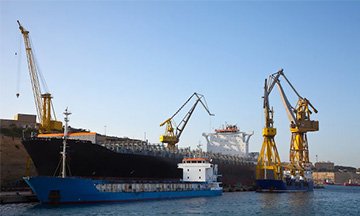Demand Management Training Course
| Date | Venue | Duration | Fees | |
|---|---|---|---|---|
| 28 Apr - 02 May, 2024 | Doha | 5 Days | $4950 | Register |
| 27 May - 31 May, 2024 | London | 5 Days | $5695 | Register |
| 02 Jul - 04 Jul, 2024 | Riyadh | 3 Days | $4100 | Register |
| 07 Aug - 09 Aug, 2024 | Mauritius | 3 Days | $4250 | Register |
| 30 Sep - 11 Oct, 2024 | Istanbul | 10 Days | $9850 | Register |
| 11 Nov - 29 Nov, 2024 | Mauritius | 15 Days | $14200 | Register |
Course Overview
Demand planning is a cross-functional process of demand forecasting. It is the supply for products while minimizing excess inventory. It includes – avoiding supply chain disruptions so that the products can be delivered to customers’ needs and demands. The ultimate goal of demand management is to ensure availability of adequate inventory to meet customer demand. And, to do this without having an excessive surplus. This leads to an increase in profitability, increased customer satisfaction, and efficiency gains.
What are the functions of demand management?
Demand management requires aligning with consumer trends, historical sales and seasonality data amongst other factors. It also looks at constantly changing circumstances, that affect demand. Some of these factors are regulatory changes, economic shifts, labor force changes, natural disasters, weather patterns, or global crisis events. Therefore, demand planning should be a continuous process that’s ingrained in your business. Ambitious organisations must effectively plan to meet it.
What is the demand management process today?
Most businesses and functions are now going digital. And this is no different for supply chain and demand planning. Advances in machine learning within the supply chain are making it possible to avail forecasts in real-time, allowing lean inventory holding, and successfully meeting demand today.
This Zoe training course will empower you with strong fundamental concepts and understanding of Demand planning and its importance in Supply Chain Management. By undertaking this course, you will gain detailed information and knowledge about all aspects necessary.
This Zoe course will give you a perspective on demand planning principles and success drivers, and describe the best practices that firms are using today. You will be able to identify the relevant business process, tools, and people capabilities, that are critical to ensure an efficient and successful demand planning function.
This course will also endeavor the professionals to learn and understand how to use digital enterprise architectures. You will learn how implementing artificial intelligence and machine learning programs that can help optimize a lean, data-driven approach. This will help you identify new ways to scale back costs in operations, boost revenues and offer a competitive edge.
Course Objectives
The objectives of this course are to empower professionals and experts with:
- In-depth knowledge and understanding of Demand Planning and Demand Management
- The required skill, knowledge to accurately plan and forecast
- Knowledge of the right amount of inventory to meet customer demand
- Understanding on how to not incur shortages or waste money on making and storing surplus inventory
- The required confidence and experience to partake in devising an effective Inventory Management strategy
- The required awareness, methods, and approaches to choose the best-suited planning method
- Help the organisation to gain maximum benefit
- An overview and an understanding of the value chain in Inventory management
- A sense of pride in playing an important part in increasing organisational profitability
Training Methodology
This collaborative Masterclass in Demand Management course will comprise the following training methods:
- Lectures
- Seminars & Presentations
- Group Discussions
- Assignments
- Case Studies & Functional Exercises
Like all our acclaimed courses, this masterclass follows the ‘Do-Review-Learn-Apply’ methodology.
Organisational Benefits
Through this course, organisations will benefit as follows:
- An efficient demand forecasting system, which will enable supply chain-related decisions
- Improved supplier relations and procurement terms which will drive the costing and planning of raw material
- A better planning process which facilities procurement to release timely purchase orders to suppliers.
- Better utilization of capacity and adequate allocation of resources
- Optimization of inventory levels and a reduced ‘Bullwhip’ effect across the Supply Chain
- Improved and effective distribution planning and logistics
- Increase in customer service levels
- A better product lifecycle management
Personal Benefits
Through this course, professionals involved within the Demand Management process will benefit in the following ways:
- Increased understand and knowledge of all aspects of Demand Management
- Greater skills and understanding to effectively manage international collaborations and communications to transfer information to various departments
- Better skillset and capabilities to perform statistical data analysis and data modelling.
- Increased potential to manage change in demand, effectively with minimal-to-no impact on operations
- Effective decision making and strategic skills to analyse data, and to make the most effective, best-suited decisions
- Better knowledge and skills for managing Demand Management systems and software, gain familiarity with Enterprise Resource Planning (ERP) systems, which will eventually be the source of data
- Enhanced perspective and foresight to effectively assess future risks so that they don’t negatively impact the organisation
- Increased knowledge and awareness on industrial best practices
Who Should Attend?
- Senior management of organisations who would like to understand the importance of demand planning & management
- Supply Chain Managers Planning and Forecasting Managers, Inventory Managers wishing to reinforce their understanding on the subject
- Demand planners responsible for the Demand planning operations of the organisation
- Suppliers, Supply Chain Professionals who need to get an overview and understanding of the varied aspects of the Demand Management
- Purchasing, Procurement, Inventory, Sales and Project personnel
- Professionals who are involved in the planning, evaluation, preparation, and management of demand
Course Outline
The course will cover the following areas that are critical to demand planning and management:
Module 1: Demand Management Overview
- Overview of Demand Planning
- Definition of Demand
- Sources of Demand
- Definition of Demand Management
- Customer of the Demand Plan
- Benefits of Demand Planning
- The Bullwhip Effect
- Challenges in Demand Planning and management
Module 2: Role of the Demand Planning Organisation
- Demand Planners – Role, Responsibilities, and Expectations
- Demand management within Supply Chain
- Effective Demand Planning Process characteristics and behaviors
- Integration with Planning & Control function
- Best Practices, Examples, and Principles
Module 3: Demand in the Supply Chain
- Understanding the Supply Chain
- Customer Segmentation
- Knowing the Needs/Demand of the Customer
- Pareto Law in Identifying Product Classification
- Location of Inventory
Module 4: Factors affecting demand
- Seasonality
- Competition
- Types of goods
- Geography
- Economic Shifts
- Regulatory Changes
- Weather
- Natural Disaster
Module 5: Demand Management
- Understanding the Principles of Managing Demand
- Stock Turnover Rate
- Customer Service
- Cost of Operations
- Measuring the Effectiveness of your System
- How to use the Measurements
Module 6: The “push” vs “pull” philosophy
- Push Strategy
- Pull Strategy
- Hybrid System
- Advantages and Disadvantages of Pull System
Module 7: Demand Planning
- Hierarchy of Planning
- Aggregate Planning
- Different Types of Demand Planning
- Data sources: Internal and external
- Maintenance & Inventory Planning
- Master Scheduling
- Sales and operations strategy
Module 8: Approaches to demand Planning
- DDMRP
- S&OP
- IBP
Module 9: Forecasting
- The four pillars of Forecasting
- Principles of Forecasting
- Quantitative and Qualitative Forecasting
- Probabilistic forecasting.
- Moving average demand
- Linear regression
- Seasonal trends
- Sales forecast
- Tracking Forecast Accuracy
- Determining Safety Stock
Module 10: Product lifecycle management (PLM) Overview
- Product definitions
- Product attributes to consider when planning
- VFQ for product management
- Product Lifecycle Project Phases
- Product strategies that incorporate into Demand Planning
Module 11: Performance Measurements
- How to Use Performance Measurements
- Monthly Planning Cycle
- Demand Plan Accuracy Measurement
- When to Measure
- Planning Strategies
- Process Measurements
- Examples
Module 12: Inventory Management
- Introduction to Lean and 5S
- Periodic Stock Take
- Cycle Counting
- Perpetual Recording
- Bar-codes to Manage Inventory
- RFID for Inventory Movement
- Inventory Accounting
Module 13: Demand Planning Best Practices
- Get buy-in and demand accountability
- Have accurate inventory data
- Demand sensing / Assessing factors affecting demand
- Actively shaping demand with marketing, promotion, and pricing tools
- Due diligence when choosing & implementing the right demand planning software
- Improvement Methodology and Mindset
- Addressing Critical Issues
- Case Studies and hands-on exercises
Module 14: The Future of Demand Planning in the Supply Chain
- Current vs Future Trend
- Accurately predicting demand trends
- Technological advancements
- Machine Learning and AI
- ERP Systems











